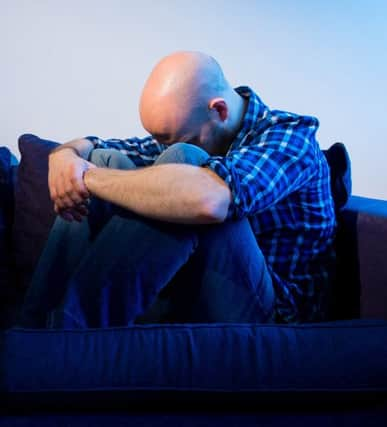Cancer patients lack the mental health support they need


The charity’s research also suggests that mental health problems that arise as a result from cancer are still too often sidelined.
The survey found mental health problems often arise at the very end of cancer treatment, when patients normally expect to recover, with little or no emotional support at hand.
Advertisement
Hide AdAdvertisement
Hide AdLee Knifton, head of Mental Health Foundation Scotland said: “Cancer is not just a physical illness, it can have a profound psychological impact and people expect to receive both physical and emotional support when they need it.”
Based on interviews with cancer patients and those providing support, the research found 49 per cent of people said they received no support or advice from health services about managing their mental health through cancer.
Sixty-six per cent said they were not informed at all about potential mental health problems that could arise at the end of treatment.
Asked about the kind of support that would have improved their mental wellbeing during and after treatment, over 60 per cent said one-to-one counselling. Forty-two per cent said better access to information, 30 per cent said peer support groups and 51 per cent said better communication from service providers.
The Mental Health Foundation has called for person-centred support to be available at all stages of cancer, from diagnosis to post-treatment and beyond. It has warned that although there is increased recognition of the impact of mental wellbeing during cancer, the support network is often patchy and inconsistent across Scotland.
Half of the service users interviewed by the charity stated that they reached an emotional “false summit” at the end of their treatment. This was due to the often unexpected psychological distress created by cancer, stemming from the life changing experiences of cancer and cancer treatment, and also to the lack of available support for mental wellbeing.
Once treatment stops, and people leave strictly managed clinical environments, survivors describe feeling as though they had “fallen off a cliff edge”. The sudden loss of support often leaves people feeling isolated and abandoned at a time when support is needed the most.
Case study
William Steele from Ayrshire, found it difficult to find help with the anxiety he experienced when diagnosed with breast cancer.
Advertisement
Hide AdAdvertisement
Hide Ad“One of the abiding themes of having breast cancer and being a man was the amazement of so many people when I told them – as if I were something different to all other men,” Mr Steele said. “This took its toll, particularly when trying to explain my circumstances to my colleagues or friends – it wasn’t easy. I was affected by anxiety at various stages of my cancer, including pre and post diagnosis. After treatment was over, I did feel, strangely, a certain loss when I didn’t have to go to hospitals and doctors so often. Once your cancer treatment finishes everything finishes – you feel lost and abandoned.
“The consequences of the treatment were horrific. Many people assume that once the cancer is treated things go back to what they were. But many people live with the consequences of the treatment which are sometimes huge.
“One-to-one counselling services provided by a local charity certainly did help to overcome the trauma that I had been through but I had to access that service myself. Only years later was I offered access to psychologists in Ayrshire and Arran.”